Innovative and Wide-ranging Solutions
The Performance Measurement Methods for KMKK Management and Leadership is a series of creative and innovative solutions that essentially aims to resolve the aforementioned factors contributing to the problem at hand.
A key feature of the innovation is a report book that serves as a database on annual key performance indicator achievements of community leaders and village heads (KMKK), and thus becomes a practical tool in evaluating KMKK in Dalat.
The KMKK Official Report Book (“Buku Laporan Rasmi Ketua Masyarakat dan Ketua Kaum”) is intended to record all official activities attended or carried out by KMKK either through invitation or as organisers for activities such as those related to the Village Security and Development Committee (JKKK).
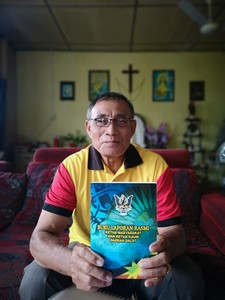
It contains a more organised reporting format available physically and digitally via Google Forms, which is easier and more useful for KMKK to process their reports than prior to the implementation of the solutions.
It also provides a more comprehensive information that allows Dalat District Office to measure these community leaders’ performance.
Unlike before where it only had KMKK’s meeting minutes and activity reports as their reference, the district office can now refer to the report book to determine ways that empower KMKK to continuously undertake their basic responsibilities more effectively, especially in improving their ability to make development plans for their communities.
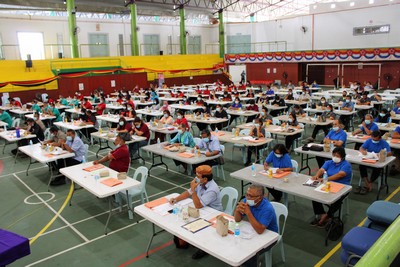
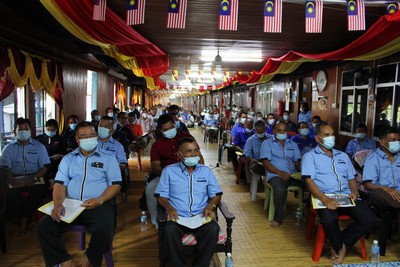
Aside from the report book, The Administrator has come up with methods and activities to enhance KMKK’s capability in the way they work and lead their people. They include:
- The use of the Leadership Matrix to measure the leadership level of KMKK
- Appropriate and measurable indicators, subsequently setting weighted Performance Measuring Index targets with the goal of generating performance criteria and assessments to KMKK
- A series of training sessions to further strengthen the governance and leadership of KMKK that will then be translated into improvement actions leading to more impactful activities by village committees. Between 2019 and 2020, Dalat District Office managed to organise up to nine sessions, despite the ongoing COVID-19 pandemic.
Impact from the Innovation Project
Following the implementation of the innovation project solutions, Dalat District Office has seen significant impact to local communities.
This is because these solutions have enabled KMKK to supply the latest information and carry out action plans to provide planning involving the development of their respective villages and longhouses.
Case in point, thanks to updated profiles of villages in Dalat District, KMKK were empowered to assist during the management and distribution of assistance and food basket during the COVID-19 pandemic, ensuring that every household received the necessary help.
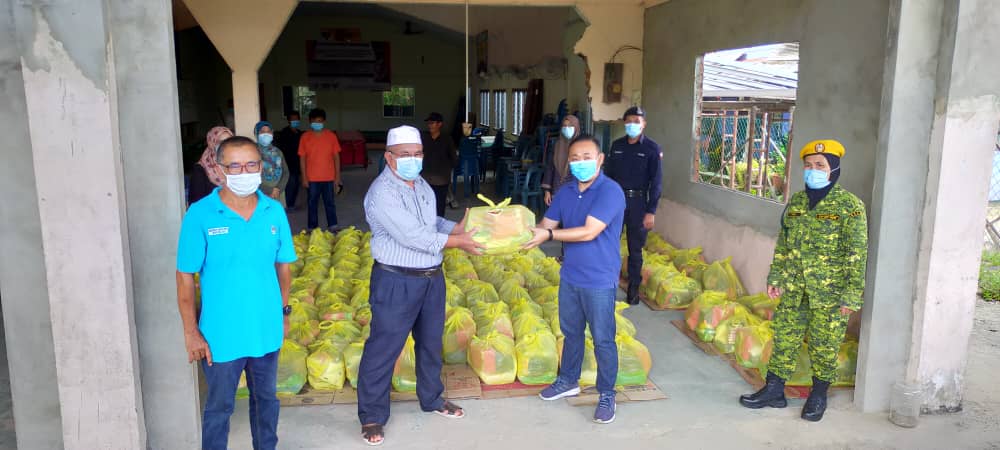
For Dalat District Office, these solutions have improve the administration of the district, further supporting its strategic objective of enhancing its service delivery based on the people’s well-being.
In turn, its collaboration with high-performing KMKK as well as other stakeholders enables the district office to translate government policies and directions more systematically through a shared vision and mission.
Professional Growth within The Administrator
The Administrator was formed on 3 February 2020 and participated in its first innovative creative circle (KIK) competition in the same year.
It comprises six officers and a coordinator, all of whom are staff of Dalat District Office and Oya Sub-district Office.
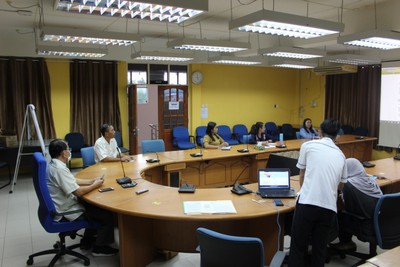
Between these members, the innovation project has given them the opportunity to improve their competency in various aspects of project management and implementation, such as their understanding on KIK, teamwork, creativity, time management and public speaking.
Having witnessed the success and impact of their innovation and with the support of the management especially from Mukah Resident Office, The Administrator has been taking the initiative to promote its innovation project to other administrative offices, including Sarikei Resident Office and Meradong District Office.
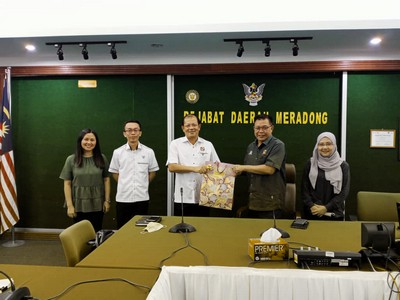
It is the group’s hope that the innovation can be highlighted and used in managing KMKK across resident and district offices in Sarawak.
Given the benefits towards local communities and relevant stakeholders, its utilisation will lead to a more effective and efficient management of community leaders as well as implementation of government policies.
*Information for this article was provided by Mukah Resident Office. RAKAN Sarawak would like to express its appreciation to the office for their assistance.





